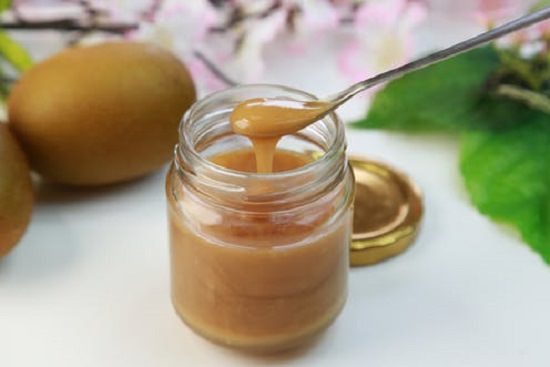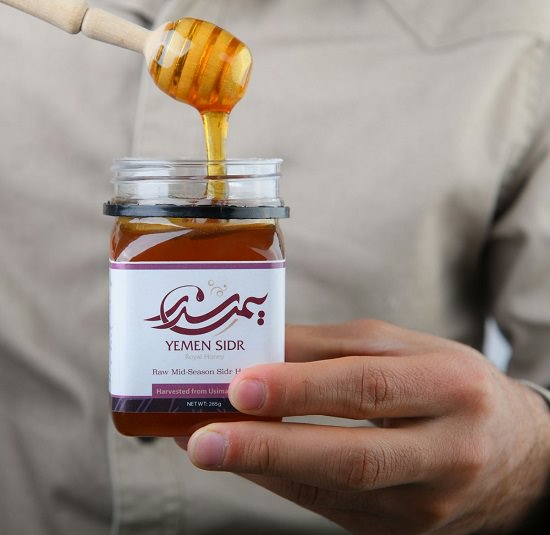Read about Yemeni Sidr Honey v/s Manuka Honey and how to consume each of them in this informative article. Keep reading to know more.
There is a lot of misconception around various types of honey and its benefits. We will tell you what are the origins and benefits of Yemeni Sidr and Manuka honey and also analyse both of their differences. Read more about Yemeni Sidr honey v/s Manuka honey in this article.
Origins of Yemeni Sidr honey and Manuka honey
Honey is a unique product made naturally by honey bees from the nectar of flowers. It is composed of carbohydrates, proteins, vitamins, amino acids, minerals, Phyto-compounds, and water. Yemeni Sidr honey and Manuka honey are unique types of honey as they are gathered by bees from only one particular type of plant.
Manuka honey is gathered from the Manuka plant, which is found only in New Zealand. The plant has medicinal properties, which are present in its honey too.
Sidr honey comes from the Sidr tree, which has other common names like Christ’s Thorn, Jujube, or Lote tree. The tree is found growing in the deserts of Yemen, Ethiopia, Libya, Sudan, India, and Pakistan. It finds mention in ancient Arabic texts for its healing powers.
Both sidr honey and Manuka have nutritive and medicinal properties. They have a smooth taste, less sugar than other kinds of honey, and have unique healing properties. Choose unfiltered, unrefined, unheated, and unprocessed honey to make them retain all their beneficial enzymes.
Yemeni Sidr Honey v/s Manuka Honey
1. Characteristics
Manuka honey is darker and has a stronger flavour than Yemeni Sidr honey, which has a lighter colour and a fine flavour. Both Manuka and Sidr honey have the ability to kill bad gut bacteria, leaving the good gut bacteria alive and that too without any side effects. On the other hand, antibiotics destroy both good and bad gut bacteria, which leaves the person with a fragile digestive system.
2. Properties
Sidr honey destroys bacteria responsible for respiratory infections. It is effective in killing drug-resistant bacteria like MRSA more effectively than Manuka honey. Sidr honey is generally more affordable than Manuka honey, but the royal Yemen Sidr honey is rarer and more expensive than manuka honey. Retailers sell Manuka honey with a rating depending on its antibacterial activity whereas, sidr honey has no such rating. Both sidr and manuka honey have anti-microbial properties when applied topically.
3. Sugar Level
Sidr honey has a low glycemic index and will not cause a spike in your blood sugar levels like regular honey. Manuka honey is high in sugars and can cause a spike in blood sugar levels. It is not advisable for people with diabetes.
4. Pricing
Sidr honey scores over manuka honey in its pricing, low glycaemic index, and documented use and efficacy since ancient times.
Individual Benefits
Manuka Honey
1. Antibacterial, Antiviral, and Anti-inflammatory Properties
Manuka honey has antibacterial, antiviral, and anti-inflammatory properties. It has a higher antibacterial effect on certain strains of bacteria than sidr honey, effectively treats gastric ulcers, irritable bowel syndrome, gum disease, and upper respiratory infections. It helps prevent inflammation in the oesophagus due to radiation and chemotherapy, which are standard cancer treatments.
2. Heals Wounds
Manuka honey is effective in healing wounds, burns, eczema, dermatitis, and skin infections.
3. Good for Skin
Manuka cleanses and exfoliates the skin, removes pigmentation, and prevents premature ageing.
4. Good for Throat
Manuka help alleviates sore throat by reducing the inflammation in the throat. Moreover, manuka honey prevents tooth decay as well.
Yemeni Sidr Honey
1. Natural Purifier
Sidr honey is a natural energizer, stamina booster, and blood purifier. It fights skin infections, heals wounds, acne, fungal infections like ringworm, athlete’s foot, and dandruff when used topically.
2. Good for Gut
Also, it has live probiotic cultures that improve your gut health. It facilitates easy bowel movement and helps in digestion.
3. Good for Fertility
Antioxidants present in the honey are cancer preventive. Moreover, you can use it to boost fertility and cure sexual problems in both males and females.
4. Good for Overall Health
It boosts immunity, delays ageing, prevents neuromuscular degeneration, increases cognitive function, and improves cardiovascular health. It also relieves stress, lower high blood pressure, and promote sound sleep.
How to consume?
Yemeni Sidr Honey
Add spoonful honey to hot water with lime juice and drink it first thing in the morning. It helps shed excess weight. You can take 1 to 2 tablespoons of Yemeni Sidr honey daily to improve immunity and overall health. You can use it as a sweetener on pancakes, waffles, dressing on salads, curries, Chinese dishes, and stir-fries.
Topical application of the honey on wounds, cuts, and burns helps heal them faster. You can use it in face masks and hair masks to keep skin blemish-free and keep the scalp free of dandruff.
Manuka Honey
Furthermore, you can consume a teaspoon of Manuka honey about five times a day. You can also add it to smoothies and baked goods as a substitute for sugar, stir fry sauces, salad dressings, tea, or just hot water.
Alternatively, you can smear it on wounds, cuts, and skin infections to promote healing and add it to face masks to keep your skin looking fresh and blemish-free.
Now that you have read about yemeni sidr honey v/s manuka honey, incorporate any of them in your daily diet to reap their benefits.



